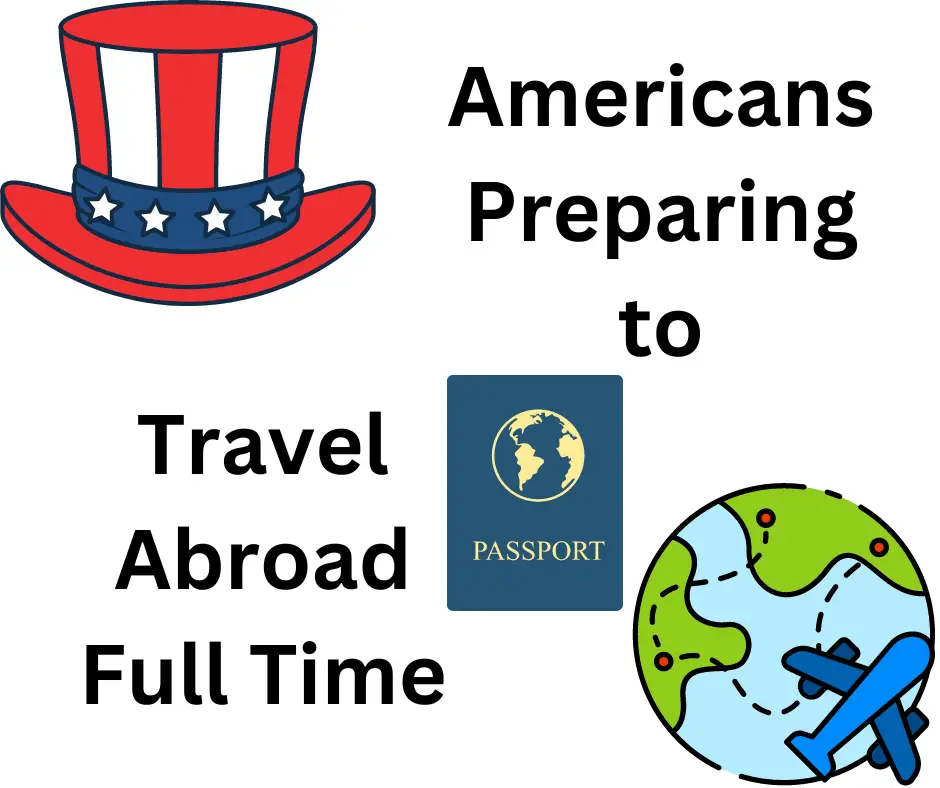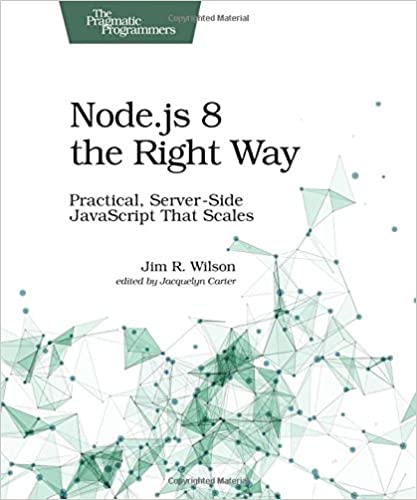; Date: Mon Mar 25 2024
Tags: PayPal »»»» Digital Nomad »»»»
Many Americans love to travel, and some hope to live full time traveling outside the USA. I wanted to try living outside the USA, and after several long-term trips abroad I'm on a super-long trip abroad. Each trip taught me a lot, from which I have some recommendations.

For years I've been thinking about living in a particular country. My partner was born in that country, and we've made several long visits. As I learned more about the history, people, and language, I naturally wanted to stay longer in the country. That and several other issues finally gelled into giving our house in SIlicon Valley back to the landlord, selling my car, and my bicycles, and us leaving the USA in 2022 for a trip meant to last 3-4 months. that was the plan, and in real life this trip stretched out to 1 1/2 years. Fortunately I was well prepared.
Before leaving on this trip we carefully prepared some critical financial and legal things. This included remotely managing finances in the USA, continue earning a living in the USA while traveling, and how to keep a USA drivers license and address without owning or renting a physical address.
The last item, not owning or renting a physical address, goes against both social norms, and basic requirements of modern life. In general we must keep bank accounts, credit cards, cell phone plans, and identity cards or drivers licenses. Thanks to provisions of the Patriot Act, and anti-money-laundering regulations, banks are cracking down on those who do not own or rent a physical address. For more about threading through those requirements, read: Maintaining accounts with USA banks etc, while traveling abroad, using virtual mailboxes and virtual phones
Preparing for a long-term traveling lifestyle is more than the nuts-and-bolts of maintaining bank accounts and identity cards. There are stereotypes to confront about those who don't have a fixed address. Emotional preparation is required to abandon the comfort zone of renting or owning a place, and instead to constantly moving from one temporary place to another.
The long-term travelers
The stereotype to confront is homelessness. Those who don't own or rent a home are homeless, right? Homeless people are dirty beggars living on the street asking for money, right?
Sometimes that's true, but not always.
There are many who are regular folks with jobs and decent incomes for whom life means not having a fixed address.
These include traveling nurses, long haul truckers, traveling salespeople, and others whose work keeps them moving from place to place essentially every day of the year. What about the travel bloggers/vloggers who tell us about adventures in this place or that? What about the retirees who sell the house, buy an RV, and travel around the country full time?
These, and other, people are professionals, earning a good living, but whose life would be greatly inconvenienced by owning or renting a home or apartment. Why own or rent a place that you never even visit?
Homeless?? Emotionally preparing to be a full-time traveler
Some of us will strongly feel the stigma of "I'm homeless". Sometimes I find myself with a lesser form of that, where I feel uprooted and long to have a space to keep my stuff and work on projects at home like I used to do.
Some have a stronger feeling, actual distress over "I'm homeless". In such cases, it can be useful to slow down, pause, take a breath to center on yourself, and recall why you chose to not have a fixed address. For those of us forced into that homeless role, who simply cannot afford to rent a place, they have a right to feel distressed. They're homeless not from choice, but by being forced into homelessness. Those of us who chose this life did so of our own volition. We could revert back to living at a fixed address at any time.
Whenever such an issue arises for you, go inside and recall your reason for taking this step. Remind yourself of that reason, and talk with your inner self about this. Try to find the root of the distress to better understand what you're feeling. As they say, know the truth and the truth will set you free.
By directly facing the fears and the reasons for taking this step, one can with a clear conscious either return to owning or renting a home or apartment, or one can center deeper into their rationale for not doing so.
That's the difference between a stereotypical homeless person, and the full time traveler. The latter consciously chooses this status, or chooses to return to living in a home or apartment.
Letting go of your old life
Beyond the "I'm homeless" reaction there are other steps to emotionally prepare for the lifestyle of not having a fixed address.
Will you ever see your friends in your old area?
Your lifetime of living in a house or apartment created certain habits. How will you transition to living with just the things you can carry? How will you handle always having to find new grocery stores or other resources? All the comfort you had at home will be gone, and adjusting to a traveling life is different in ways that cannot be predicted.
Consciously explore each new place on your journey. Find ways to keep track of old friends while traveling. Some may want to visit the places you're going. You can find new friends along the way. There are online community groups on social media sites, or on independent forums, where people discuss things about full time traveling.
Dip your toes in the water of full time traveling
The stereotypical travel is to take two weeks off work, find a few cities to visit, and book hotels for a day or two in each city. That's only good for getting a brief micro-taste of a foreign country. Those of us who yearn to travel full time, we're a different breed, and we want to gulp deeply the experience of living in a different place.
A very good idea is to take some medium-length trips to test your readiness. That means staying away from your home for 1-2 months, and avoiding staying in typical tourist hotels. You'd be living in a different place, not traveling through. That's a whole other life experience.
Instead of traveling by staying in hotels and eating from restaurants, rent an apartment, buy groceries, and try living as a local.
In my case we made several trips to Eastern Europe, living in apartment buildings built during communist rule, getting food at the local farmers market, traveling on foot or via mass transit, and generally living as a local. My partner was born in the country making it easier to know the ropes. I've also learned some of the language, history and culture. An important personal goal was to manage buying things in stores, in the markets, and at the booths for buying transit tickets, on my own.
These trips were 1 month at a time, while maintaining a house rental in the USA that we returned to at the end of the trip. The current trip wasn't planned to last this long, and we've somewhat successfully stayed 1 1/2 years outside the USA. The big difference between this trip and the previous was we do not have a physical address in the USA where we will return.
Slow travel versus a new country every week
A related issue to resolve is the pace of your traveling lifestyle. One stereotype is a full-time traveler goes to a new place every week. The goal might be visiting every country in the world, including the truly dangerous countries.
Such a traveler might carry only what fits in unchecked luggage - a backpack in other words. By traveling light they can easily move from place to place, and not worry about losing luggage.
But, that's not every person's cup of tea. Other travelers use a "slow travel" approach meant to give enough time to really soak in and learn about the culture of places they're visiting. Slow travel isn't so much about the mechanics of traveling, but learning about different places or cultures.
Your own preference will emerge as you travel.
Practical steps to prepare for the full-time traveler life
Beyond the emotional preparation, there are many practical steps to take care of. These recommendations are based on my experiences pre-planning and then living as a full-time traveler.
I am involved with several Facebook groups for expats, including the country where I am currently residing. Discussions in those groups gave many useful hints.
- Online banking is vital. Thanks to the Internet, we can drive financial accounts remotely whether by smart phone apps, or websites. You've probably already taken this step, but make sure to do so. It's preferred to use a desktop computer, no matter how much you're enticed into using mobile apps.
- Be aware that some financial institutions block access from outside the USA, or else from certain (dangerous) countries.
- Become acquainted with VPN software. The relevant purpose to this article is that it allows you to use the Internet as if you're in another country. You might find your bank has blocked access from the country where you're residing. The VPN software makes it appear you are in another country, such as your home country, which should give access to websites that would otherwise block you.
- Low-cost, reliable, currency exchange is vital. Outside the USA, currency exchange shops are commonplace, but can be a nightmare of fees and occasional scams. Two companies, Wise and Revolut, specialize in easy/simple/inexpensive currency exchange in multiple countries. Money exchange fees are low and transparent. Neither are banks, but have bank-like features, including a debit cards that can be used anywhere in the world.
- I have a Wise account containing both personal and business sub-accounts. For each currency I configure, Wise gives regular bank account credentials (e.g. ACH account numbers for US banking) simplifying money transfers between your accounts. Currency exchange fees are transparent, easily checked, and inexpensive. My personal account has an ATM/Debit card with which I can make purchases or withdraw money from ATMs to get local cash. Business payments are direct deposited into the business side. Both sides earn well over 4% interest rate on US Dollar deposits.
- Wise and Revolut let you avoid the money exchange businesses and reduce the cost of changing currencies.
- DO NOT DO CURRENCY EXCHANGE IN THE AIRPORT. Instead, whip out your Wise or Revolut card and look for an ATM machine.
- Making/receiving phone calls or text messages in your home country is important, not just for interacting with financial institutions, but maintaining connection with family or friends.
- Some cell-phone providers offer roaming while traveling abroad, but this can be very expensive. For example AT&T roaming was $10/day in 2022, and in 2024 is now $12/day.
- Google Voice works just as well on the road for making/receiving USA phone calls as it does inside the USA. But, banks do not always accept a Google Voice number, and their 2-factor authentication systems are not always able to send text messages to a Google Voice number.
- WiFi Calling is an excellent choice which fixes the problems just named. With this feature your cell phone can connect to your cell phone network over the Internet. As long as your cell phone is on WiFi, you can make/receive phone calls and text messages exactly as if you're located in your home country. WiFi Calling works in situations where Google Voice fails. See: Using USA regular phone numbers while traveling abroad
- Set up payments directly to your bank account, or Wise/Resolut account, to be paid while abroad.
- Some financial institutions require that you notify them before traveling abroad, so they aren't surprised by transactions from a different country.
- Before leaving for a new country, research the airport or train station where you'll arrive, specifically focusing on transit or taxi services. The risk of taxi drivers scamming a tourist is real. The more you know about your destination country the better off you'll be.
- There may be organized taxi access and with defined rates.
- There may be access to public transit systems.
- There may be public WiFi access through which you can order "Uber" or the like.
- Learn in general about the public transit system, the taxi system, and services like "Uber".
- The value of systems with clearly defined rates, like public transit, is you know precisely how much you'll be charged, versus a taxi driver who hears your American accent and takes you for a ride charging an outrageous fee.
- Get a second cell phone, and get a voice/data SIM in each country you visit. Use one cell phone for the SIM card for your home country, making sure it supports WiFi Calling. The second cell phone will serve as your local phone in each country, and it gives you data access to the Internet. Depending on your needs, you might want more than two cell phones.
- Some recommend getting an ESIM rather than a local SIM. The problem being addressed is having Internet access in the airport so you can order "Uber" avoiding any possible tourist-scamming-taxi-drivers. The ESIM plans for travelers I've looked at only offer data access, no voice access, and are relatively expensive. For example, today on FlexiRoam for the country I'm residing in, they're offering 5GB of data for 30 days for $11.50, and 10GB of data for 30 days for $18. By contrast, the Vodafone plan I have offers unlimited data/messages/voice for 8 euros per month, and unlimited really means unlimited. See Using USA regular phone numbers while traveling abroad
- Before leaving on your trip, research the airport to see if it has public WiFi service. If so, you can use that to order "Uber" if that's what you want.
- Another thing to research is access to the regular transit system. For example, in Bucharest, Madrid, and many other cities, there is a train or metro station in the airport which you can use instead of the local taxi's.
- Research the cell phone providers in your destination country to compare rates and services. In the country where I'm residing, Vodafone offers unlimited voice/SMS/data for 8 euros per month with no contract. That's a fraction of the cost for equivalent cell phone service in the USA. I got the Vodafone SIM in a shop near our apartment, and even routinely use my cellphone as a WiFi hotspot.
- Research cell phone providers in your home country, as discussed in Using USA regular phone numbers while traveling abroad.
- Maintain residency in the USA by using the full-time travelers programs in South Dakota, Florida, or Texas. These programs are for folks traveling full-time and therefore do not own or rent a home or apartment.
- Test whether your financial institutions will accept an address like 123 Main Street PMB 34512, Anytown, State, USA.
- Establishing mail forwarding service with a provider in one of the three states offering residency for full-time travelers, then changing your address with financial accounts to that address.
- Traveling to your chosen state for establishing residency as a full-time traveler.
- Convert your financial institutions to use the mail-forwarding address you set up in the previous step.
These preparatory steps are required for maintaining financial accounts while traveling abroad. I'm writing this as an American who is traveling outside the USA. The required steps will be a little different for Americans whose travels are inside the USA. And they'll be more different for non-Americans who are traveling full-time.
WiFi Calling advice: Using USA regular phone numbers while traveling abroad
The rest of this focuses on my experience in setting this up as an American traveling outside the USA.
Maintaining a residence address without having a residence
Maintaining financial accounts (banks, credit cards, stock trading, etc) requires having an address. But, the full time traveler probably does not have an address. How, then, does s/he maintain financial accounts?
There are mailbox providers who will receive your mail, store it for you, scan the mail on request, and optionally forward the mail to your current location. You tell your corespondents, including financial institutions, to send your mail to the address of the mailbox provider, and sign a legal form authorizing the provider to serve as a Certified Mail Receiving Agency (CMRA).
In the USA there are three states, South Dakota, Florida, and Texas, which build on the mailbox provider concept. These states offer residency for full time travelers based on maintaining a mail forwarding account with such a provider. They even provide an official government issued drivers license or identity card showing the mailbox provider address as your residence address.
While you can instruct financial institutions that such an address is your mailing address, it cannot serve as your home address.
We go over this in great detail in: Maintaining accounts with USA banks etc, while traveling abroad, using virtual mailboxes and virtual phones
Money exchange with low fees using an ATM card
While traveling abroad you must convert between your home currency and whatever currency you encounter during your journey.
The traditional method is to visit a currency exchange office, either exchanging cash, or getting a cash advance using a credit card to buy local currency. The exchange will charge a fee on top of converting between currencies.
Another method is to simply use your credit card at point-of-sale terminals. The credit card companies handle both the currency exchange and the exchange fees.
Unfortunately both types of organization are rife with corruption and opaque fee structures.
Two companies, Wise (formerly TransferWise) and Revolut are online platforms for currency exchange both for personal and business use. I have a Wise account, and I believe Revolut functions similarly.
The first step is setting up connections between your bank and credit card accounts and the Wise or Revolut account. Wise offers ACH routing and account numbers in the USA dollar, and Swift codes for other currencies.
Within the account you can freely exchange between almost every currency. The currency exchange rates and fee's are low cost and completely transparent.
The second step is to get their ATM card. The card can be used at any ATM or point-of-sale terminal, and the exchange rates and fees are just as low cost and transparent. There is no fee at the ATM.
Lately, Wise began offering a very high interest rate on currency held in the account (in certain currencies). This is an encouragement to hold a lot of currency in the account, which may be good for their business.
I keep transferring cash from my USA bank to my Wise account. I then use the card to pay for things or to buy cash in the country where I reside. It is very fast and easy.
As an adjunct I have moved a lot of cash to PayPal, partly because it too is offering a high interest rate for savings. PayPal also can hold different currencies, including cryptocurrency, and it can handle bill payment with a small list of companies. My PayPal account is linked to the Wise account, allowing for money transfers between the two.











